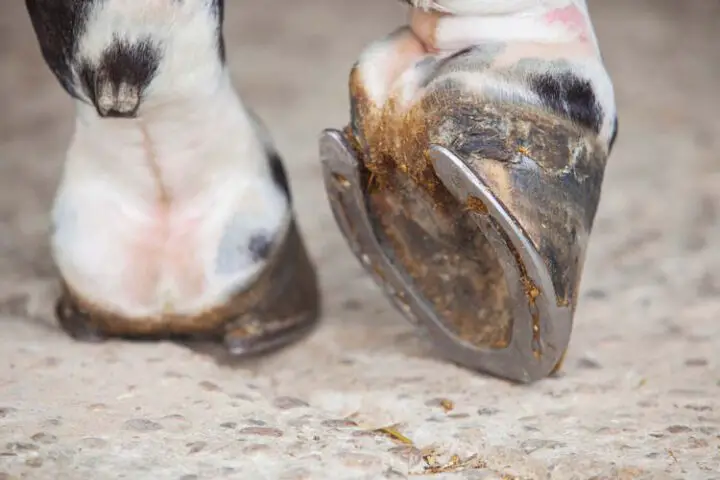Horseback riding is fun and liberating. However, riders must deal with spooking, as it’s common with horses. You may find that your horse spooks at the slightest provocation, which can be scary for the rider and the animal. Luckily there are ways to help your horse when he is spooked so that you can keep your cool in such situations.
What Spooks Your Horse?
According to trainers and riders from Strathorn Farm Stables and Riding Club, horses will spook from just about anything they perceive as unfamiliar or out of place, including shadows, plastic bags, umbrellas, and strange noises. In most cases, their fear comes from not having experience with these objects before, which causes them to react with flightiness or panic instead of curiosity.
There could also be underlying reasons why they become scared such as bad experiences in the past with something similar to what they now see or hear, causing them to have an extreme reaction that may lead to dangerous behavior.

How Do Horses React When Spooked?
The response depends on how severe their fear is towards whatever caused this reaction; however, some common responses include bolting, spinning around in circles, rearing up, reversing, freezing on the spot, jumping to the side, or bucking.
Ways to Calm Your Horse After It’s Spooked
There are many ways you can help calm your spooked horse, whether you’re on the ground or mounted; here are some tips:
Tips to Help Calm a Spooked Horse While Riding
It’s more dangerous for the rider when a horse is spooked while you are riding and could result in falling and injuries. Therefore, you must learn how to calm your horse before mounting.
Stay Calm
When your horse spooks, it’s essential to stay calm and not panic. If you do, your horse will sense this heightened emotional state and become even more unsettled. Instead, talk to them calmly as if nothing has happened; this will help soothe their nerves and prevent further spooking.
Riding Proactively
It’s important to be aware of what might potentially cause a reaction from your horse before riding. Take note of any strange noises or objects that could trigger a response from them, such as construction sites or bright lights. By being proactive, you can better prepare yourself for if/when your horse does spook.
Pet Their Mane
A great way to calm a scared horse is by running your hands through its mane or giving them a gentle pat on the neck. This will reassure them and make them more comfortable with you and whatever caused the scare in the first place.
Loosen the Riding Rein
If you’re riding when your horse spooks, keep hold of the reins but loosen up slightly so they don’t feel as restricted, as this could further aggravate their fear response. You should also try not to pull on one side or another, as this can cause even more confusion for the animal.
Redirect Their Attention From The Object That Spooked Them
When a horse is scared by something, it’s best to redirect its attention away from it to reduce any potential risk of further spooking. You can do this by guiding them in circles or serpentines around the area until they are more settled and focused on you, not the object that caused the fear.
Use Lateral Flexion in Severe Cases
In cases where a horse has become particularly panicked, it’s best to use lateral flexion techniques, which involve side-to-side motion of their head and neck as if ‘nodding yes.’ This helps release some built-up tension from within while also helping them stay calm during potentially dangerous situations.
Act Promptly By Retreating
Act quickly when your horse spooks; retreating away from whatever has scared them is often the best way to ensure their safety and yours. It also allows you to get both of you back into a sense of control before attempting anything else.
Use the Moment as a Training Opportunity
Spooking can be used to train your horse to desensitize itself towards whatever caused the fear response. You can act calmly and positively while rewarding them throughout this process. This helps them learn that objects previously seen as a threat are not harmful and will eventually stop reacting in fear.
Tips to Help When You are on the Ground
It’s relatively easy to despook a horse while on the ground. You can do this by:
Approaching the Horse With Care
When dealing with a spooked horse on the ground, you should always approach slowly with care so as not to further agitate them. Gently stroke their neck and speak softly while calmingly running your hands over their body until they start to relax.
This helps release the tension built up within them due to the scare, which will help them settle back into a more relaxed state sooner than if left without intervention. Do not rush this process, or it could make matters worse.
Using an Herbal Remedy
If you think your horse still needs extra help calming down despite all other attempts, various herbal remedies such as chamomile and lavender essential oils are available. These have been known to act as natural sedatives when applied directly onto the skin or orally ingested.
Being Patient
Above all else, patience is key when dealing with spooked horses. It’s essential to be understanding and take your time. This will help build a strong and trusting relationship between you, which could prove invaluable during future riding sessions.
Things Not to Do to a Spooked Horse
Avoid doing these things if you don’t want to make matters worse.
Don’t Pull the Reins
When a horse spooks, pulling on their reins to hold them back or turn them away from whatever has caused the fright is not advisable, as this can further agitate the situation. Instead, try using soft but firm pressure on both sides equally so they know you’re there for support without feeling restricted.
Don’t Yell at the Horse
Never use loud or harsh tones when talking with your horse after being spooked. Yelling at them won’t improve things and could lead to more severe behaviors due to their heightened fear.
Instead, keep reassuring words low-key yet clear enough so they understand where you are taking the conversation.
Final Thoughts
Horses are incredibly sensitive which can lead to unusual reactions if startled by something unfamiliar or out of place. Fortunately, there are ways you can help calm your horse when they spook, such as staying calm, petting their mane while speaking softly, and maybe even using herbal remedies like chamomile oil should other attempts fail.
Above all else, though, remember: patience is key here as any rushed decisions may only worsen the situation rather than improve it.





